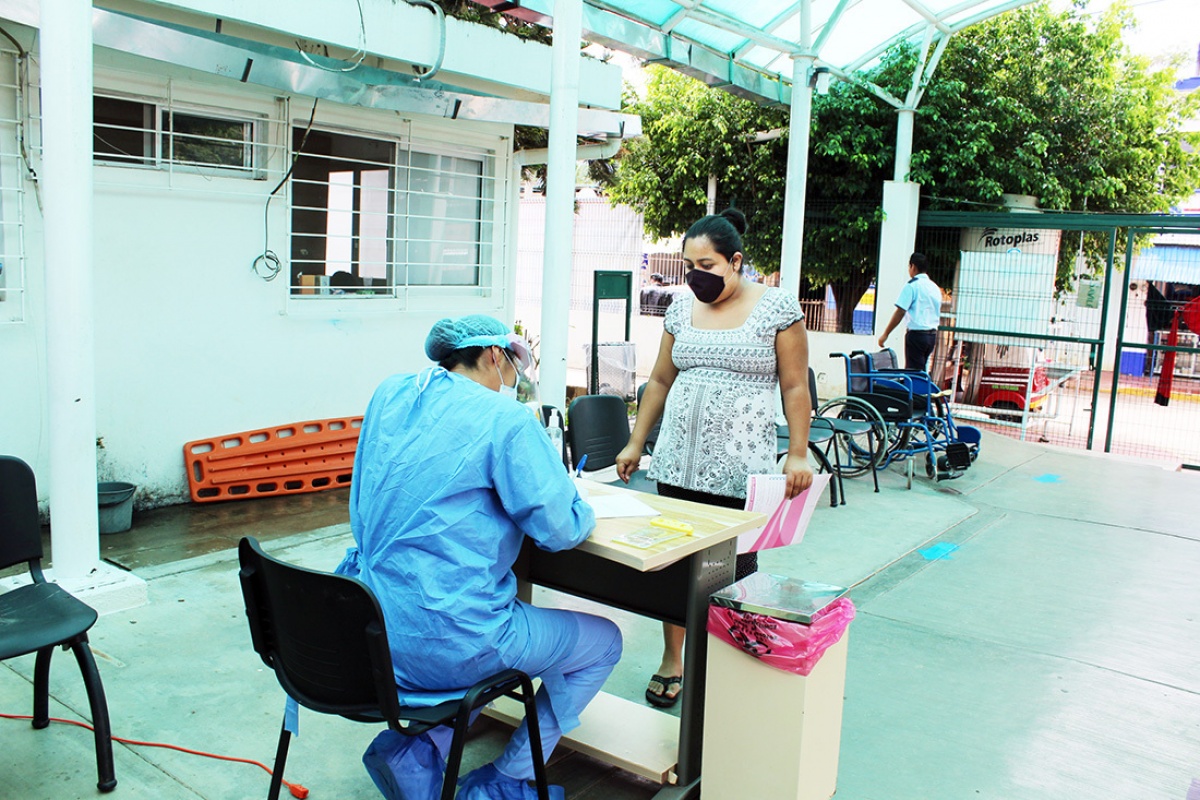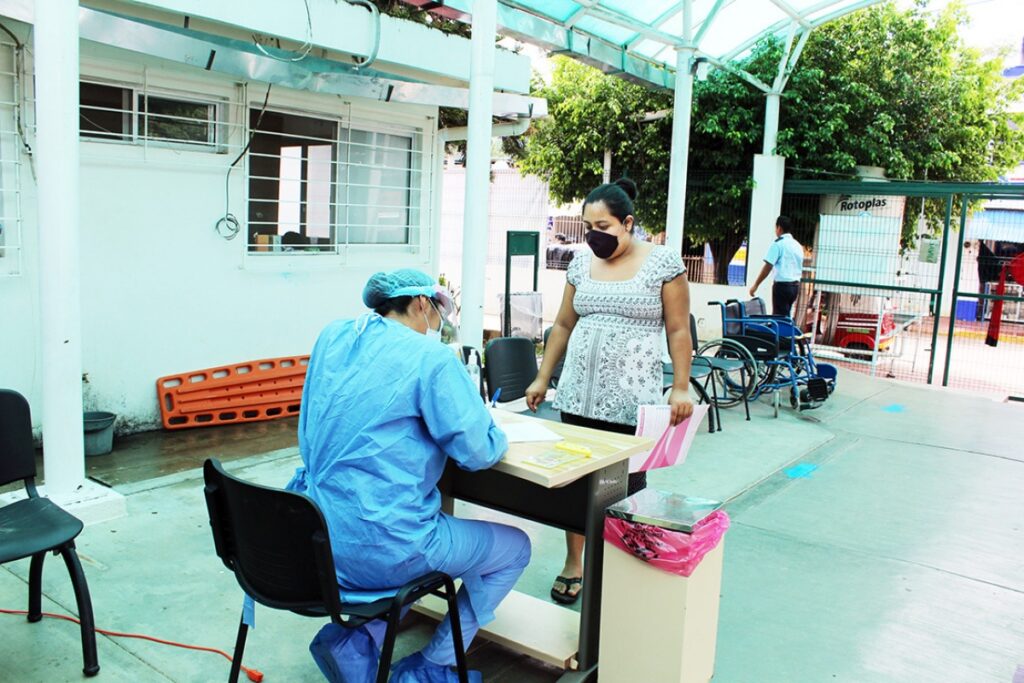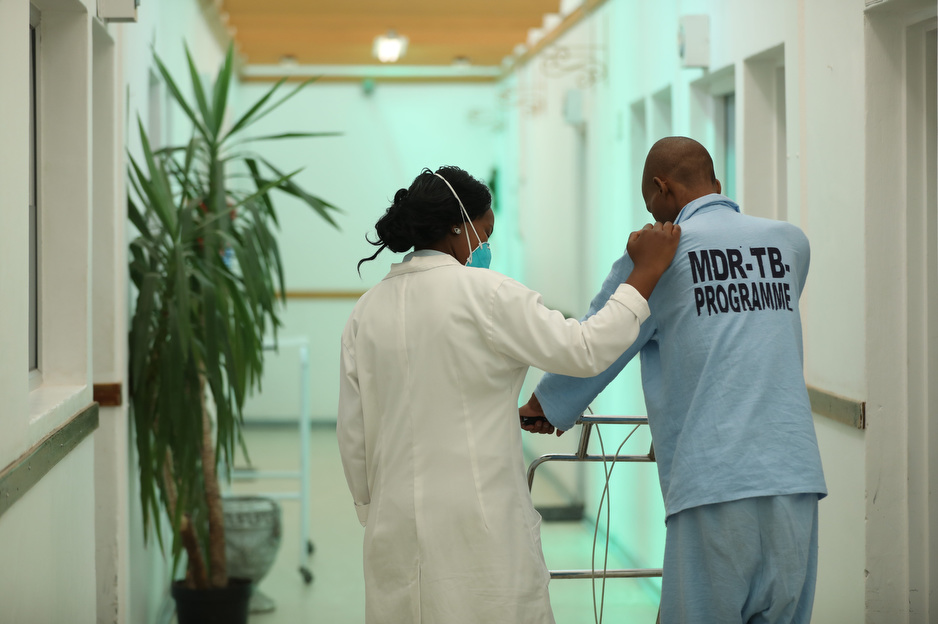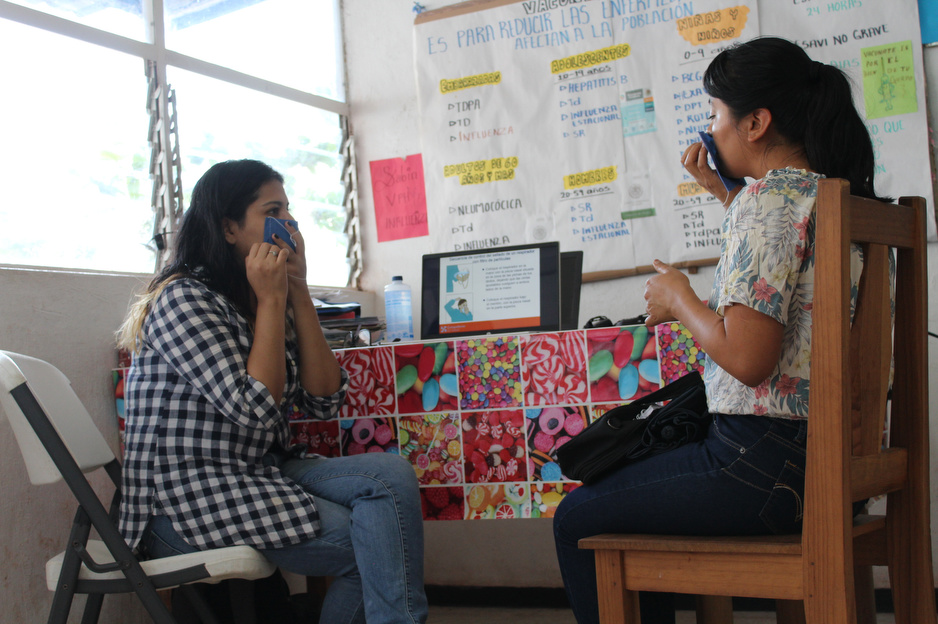Local Health Systems Key to Responding to Global COVID-19 Pandemic and Beyond

Insights from PIH’s Lesotho, Mexico and United States teams

This essay was written by Partners In Health staff directly responding to the COVID-19 pandemic around the world. Dr. Daniel Bernal is tuberculosis project coordinator at Compañeros En Salud, as PIH is known in Mexico; Dr. Melino Ndayizigiye is executive director of Bo-mphato Litsebeletsong Tsa Bophelo, as PIH is known in Lesotho; and Katie Bollbach is director of the U.S. Public Health Accompaniment Unit, leading contact tracing efforts across the United States.
It is commonly noted that this pandemic has swept the entire world but has affected countries—and populations within countries—in dramatically different ways. Indeed, initially hailed as the “great equalizer,” COVID-19 has exacerbated scandalous inequities both within and between countries across income levels, as well as the effects of under-financing public health systems.
For Partners In Health, which has been working to address such inequalities for more than 30 years, it has also reaffirmed the critical importance of local health systems in determining the response to major health threats—in this current pandemic and beyond.
Our work varies widely, but one major theme emerges: the impact of COVID-19, on health as well as economic and social life, is inextricably related to the capacity of local health systems that has been carefully built—or dismantled—over the years.
For example, Lesotho is one of the poorest countries in the world, entirely surrounded by South Africa, with some of the worst health statistics in the world: 1 in 4 people are living with HIV. Each year, there are 654 new TB infections per 100,000 people each year—the highest TB incidence in the world. And 1 out of 97 women die during childbirth.
At first glance, the country was not spending insufficiently on health—total expenditure on health was 11.5% of the country’s gross domestic product, according to the WHO. However, 51% of the health budget was already committed, going to pay the debt on a World Bank loan acquired to build a high specialty hospital through a “public-private partnership,” which therefore left much less for remaining care—and for responding to the urgent and sudden COVID-19 crisis.
PIH was invited to Lesotho by the government in 2006 to work in rural health clinics to find and treat HIV cases at a time when rates were some of the highest in the world. The government had seen PIH’s track record in Haiti, where sister organization Zanmi Lasante was providing lifesaving care to previously untreated rural communities, and hoped to achieve similar success. When PIH arrived, we found empty clinics, no full-time staff, village health workers (VHWs) not managed or linked to care delivery services, and a lack of basic services, labs, or medicines.
We made it our mission to turn that around by investing in local health systems. From 2007 to 2014, PIH worked to steadily improve quality of care by ensuring the clinics had drugs, staff, and increased space. In 2020, when COVID hit, Lesotho’s health system was far better prepared to manage cases in both the community and in facilities. Currently, PIH is working with the government to establish an oxygen plant that will produce oxygen for COVID-19 and other patients who need it across the country, as well as other ways in which to mitigate the negative impact of COVID-19 on routine health services. For example, the country is now decentralizing lab services from hospitals to health centers and conducting more community outreach to promote integrated primary health care services.

Improved engagement with the community—creating an atmosphere where patients and their families can exercise agency over their own health and well-being and see access to the health system as their right as members of society—has been critical throughout our COVID-19 response, in Lesotho and elsewhere.
Indeed, community engagement within COVID-19 treatment and prevention strategies—and all health care—has been absolutely critical to establishing trust in health systems within the many communities that PIH works, across different income levels. This has been especially true as we work with historically excluded communities, such as indigenous communities in Chiapas, Mexico.
Despite Mexico’s status as an upper middle-income country, vast disparities in wealth—and health indicators—remain. As of September 2020, the country led in health care worker deaths globally and ranked 4th in total COVID-19 deaths and 7th in confirmed cases worldwide.
Politics has obstructed Mexico’s COVID-19 response as the country reckons with a health system fragmented by employment status, underfunded public institutions, and a failure to mount a coordinated government response, fueling disjointed and ineffective COVID testing, tracing, treating and prevention.
To fight COVID-19 in Mexico, PIH, known locally as Compañeros en Salud (CES), works with rural and underserved communities. CES has not only had to combat political dysfunction and health system-wide fragmentation. It has also had to address how years of inequality and neglect that have put these populations at greater risk of direct and indirect harm from COVID-19. Residents face high risk of developing chronic conditions, such as hypertension, obesity, and diabetes, and have developed distrust of the formal health system.
As we worked in Chiapas, one thing became clear: this predicament further underscored the need for effective community engagement to show that the local public health system is genuinely committed to listening to and understanding the needs of diverse populations it serves. In Chiapas specifically, PIH’s strategies have included radio programs, de-stigmatization campaigns, and conversations with the Pan-American Health Organization, community leaders, town mayors, and local and state health authorities to promote awareness and education around COVID-19.

Another lesson from our work is that building trust in care delivery is always based on both historical context and the construction of relationships over time; it cannot happen overnight when a pandemic breaks out.
We have found that when diverse communities are engaged and involved in decision-making in a meaningful and equitable manner, radically different responses to the pandemic emerge.
In Lesotho and Mexico, PIH made community engagement a central pillar in our COVID-19 response. Both teams focused on training and equipping community health workers with up-to-date information on the virus, personal protective equipment, and contact tracing tools. This community health approach—closely coordinated with local government systems—played a crucial part in connecting people to care effectively and reducing the toll of the disease on their lives.
Perhaps the most striking case study from our global response is the United States, which was ranked as first in pandemic preparedness before COVID-19 struck. For those of us who were familiar with the U.S.’s disinvestment in public health over the years, that ranking had always seemed at odds with reality. The U.S. has more of a string of hospital networks than a comprehensive public health system. Further, despite medical care costs increasing steadily over the years, the U.S. has divested from public health, spending less in 2008 than in 1966.
This divestment has led to devastating consequences in an unrelenting pandemic and lack of vital infrastructure for testing, contract tracing, and isolation with social support. It also reflects the country’s indifference to community engagement and history of systemic racism, as the hardest-hit populations and areas across the U.S. have disproportionately been communities of color.
As PIH responds to COVID-19 in the U.S., we bring lessons learned from our infectious disease work globally, including our work with contact tracing during the Ebola outbreak in West Africa. At each and every turn, we seek to demonstrate that actionable public health knowledge does not emanate from the North, as has been the predominant view in global health. Rather, we must ground ourselves in knowledge and lessons learned from diverse contexts. By turning to historically marginalized communities as the experts and following their lead, we can uncover universal truths about health systems as social institutions that, with support, can enhance inclusion and equality rather than reaffirm discrimination and promote distrust.
Article originally published on pih.org



